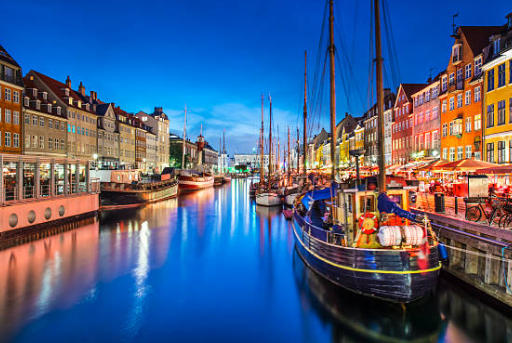The Economist Intelligence Unit reveals the world's most livable cities.

Last week, the results of the Global Liveability Index were released, developed and published by The Economist Intelligence Unit (EIU), the research and analysis arm of The Economist.
This ranking, published annually, classifies 173 cities around the world according to their quality of life.

Nyhavn Canal, Copenhagen. Photo: iStock
The EIU explains that this index assesses which places in the world offer the best and worst living conditions to their inhabitants. Livability ratings quantify the challenges a person faces in relation to their expectations in a specific location.
Each city receives a score based on more than 30 qualitative and quantitative factors, organized into five broad categories: stability, healthcare, culture and environment, education, and infrastructure. Each respondent rates these factors as "acceptable," "tolerable," "uncomfortable," "undesirable," or "intolerable."
For quantitative indicators, scores are assigned not only overall but also by category. For ease of comparison, the score for New York City is also shown, along with its overall ranking of 173 cities.

In Vienna, Austria, you can enjoy the Christmas markets. Photo: iStock
According to the index published for 2025, the most livable city in the world is Copenhagen, which surpassed Vienna for first place. Although the Austrian city surpassed the Danish city in healthcare, Copenhagen had perfect scores in stability, education, and infrastructure, putting it in first place.
The study also revealed that the average livability rating among the 173 cities in the index remained the same as last year: 76.1 out of 100. Although the perception of stability decreased, the effect was offset by annual improvements in education, health, and infrastructure.
One of the key findings is that the city with the greatest improvement was Al Khobar (Saudi Arabia), which rose 13 places due to improved health and education scores. On the other hand, Calgary, Canada, dropped from number 5 to 18, making it the city with the greatest decline.

Zurich has long been one of the most livable cities in the world. Photo: iStock
Manchester, London, and Edinburgh in the United Kingdom were also among the metropolises that saw the greatest decline due to a decrease in their stability score. As for the last spot on the index, Damascus, Syria, remains the least livable city of the 173 assessed, with Tripoli, Libya, at the top.
Below, we share the ten most livable cities in the world according to the Global Livability Index, along with their scores:
- Copenhagen, Denmark: 98
- Vienna, Austria: 97.1
- Zurich, Switzerland: 97.1
- Melbourne, Australia: 97.0
- Geneva, Switzerland: 96.8
- Sydney, Australia: 96.6
- Osaka, Japan: 96
- Auckland, New Zealand: 96
- Adelaide, Australia. 95.9
- Vancouver, Canada: 95.8
Regarding the least livable cities in the world, this is the top 10:
- Caracas, Venezuela: 44.9
- kyiv, Ukraine: 44.5
- Port Moresby, Papua New Guinea: 44.1
- Harare, Zimbabwe: 43.8
- Lagos, Nigeria: 43.5
- Algiers, Algeria: 42.8
- Karachi, Pakistan: 42.7
- Dhaka, Bangladesh: 41.7
- Tripoli, Libya: 40.1
- Damascus, Syria: 30.7
ANGIE RODRÍGUEZ - TRAVEL EDITORIAL - @ANGS0614
eltiempo





